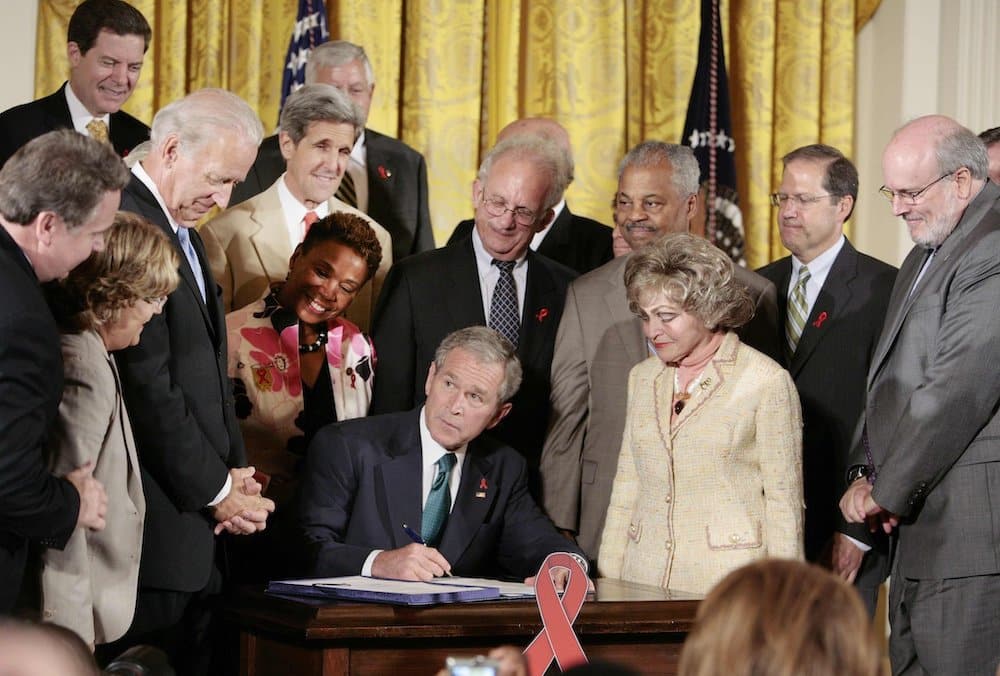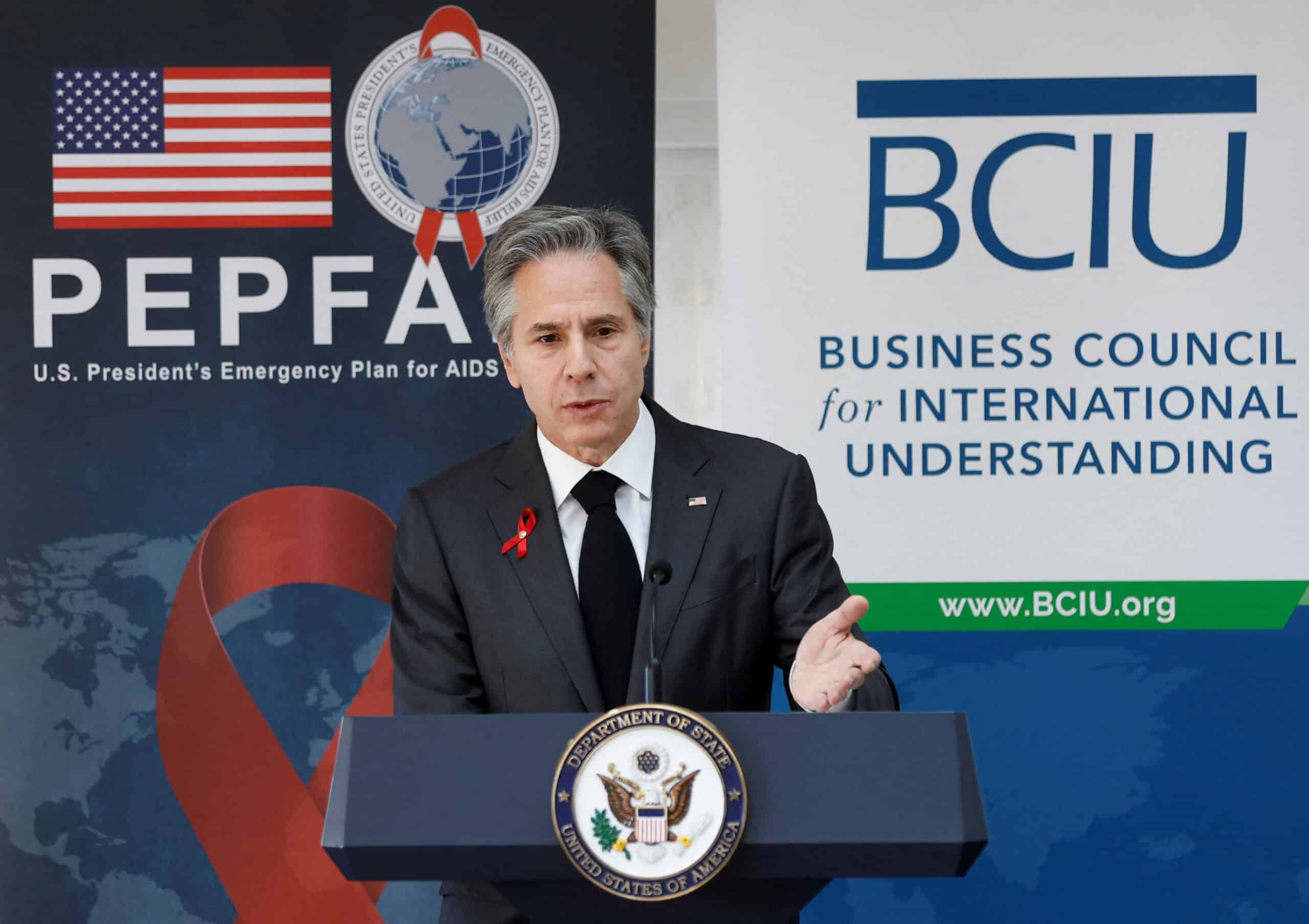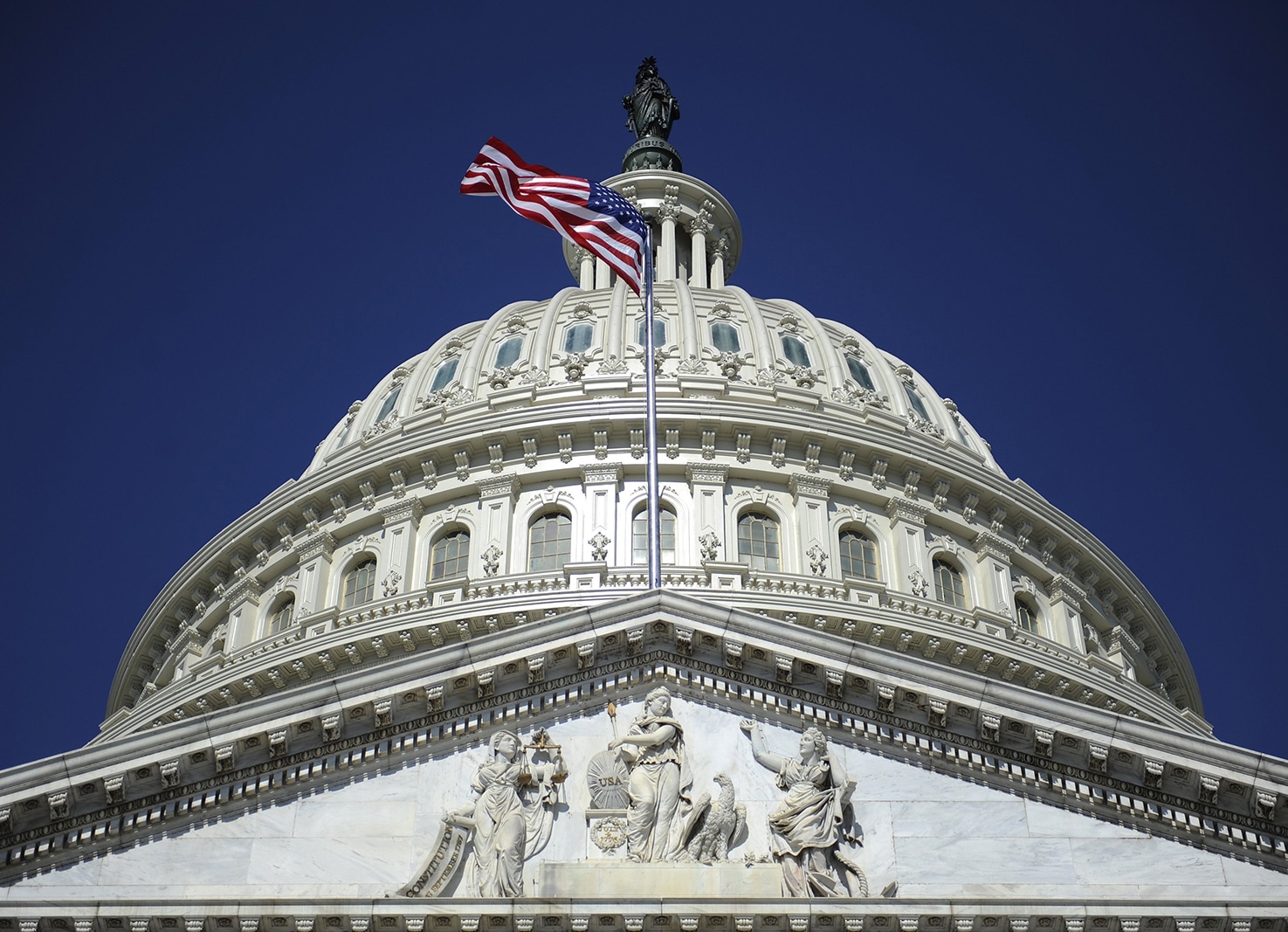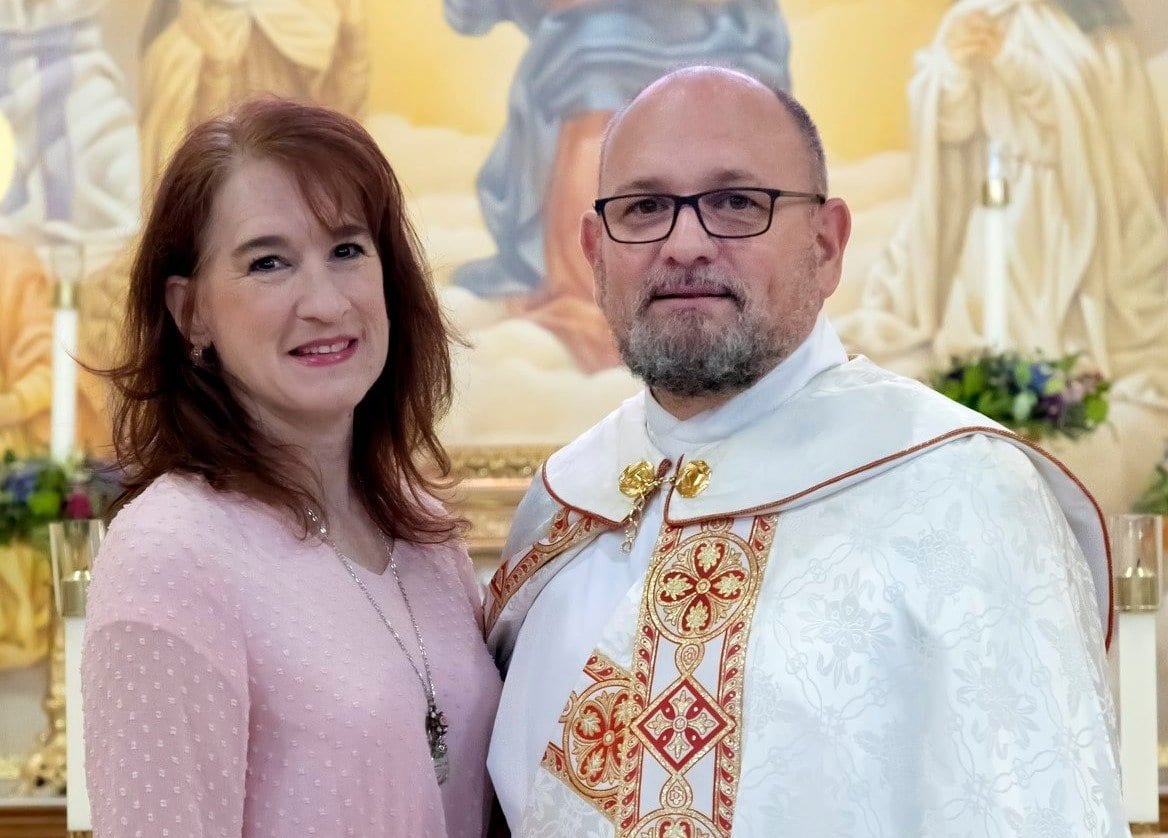WASHINGTON (OSV News) — The U.S. government’s global effort to combat HIV/AIDS was granted a one-year extension in the government funding package Congress is expected to approve, ending an impasse over the program’s reauthorization — for now.
PEPFAR, the U.S. President’s Emergency Plan for AIDS Relief, authorized by Congress and President George W. Bush in 2003, is the U.S. government’s global effort to combat HIV/AIDS. The program is the largest global health program devoted to a single disease and is credited with saving 25 million lives, and with scaling back the epidemic’s spread.
PEPFAR also is seen as an example of successful bipartisanship, having been reauthorized with broad bipartisan support in 2008, 2013, and 2018.
But PEPFAR’s future was called into question as Congress allowed its authorization to lapse in 2023 amid concerns from some pro-life advocates about the potential for some funding being diverted to groups that provide or promote abortion. Others say safeguards are in place to prevent such spending. Many supporters of the initiative, including the Biden administration, originally sought a five-year reauthorization as the program has been granted previously.
The program, in part, distributes antiretrovirals in countries where as many as one-third of adults were impacted. PEPFAR’s funding has totaled more than $110 billion to date. Congress missed its 2023 deadline to reauthorize the program before the end of that fiscal year, but now appears on track to reauthorize it for one year, setting up another debate over the program’s future in 2025, after the 2024 elections.
Abortion creeping in
Rep. Nancy Pelosi, D-Calif., a Catholic and the former House speaker, wrote in a post on social media that PEPFAR “has saved tens of millions of lives since it was signed into law by President George W. Bush over two decades ago.”
“It is great news that this critical initiative in our fight against HIV/AIDS will be reauthorized in this week’s government funding package, Pelosi wrote on X, formerly known as Twitter.
Rep. Chris Smith, R-N.J., a Catholic and a longtime supporter of PEPFAR, expressed concern about the current reauthorization of the program without adding language prohibiting administrators from funding groups that advocate for abortion access.
Asked by OSV News if the one-year extension in the spending agreement elevated his concerns, Smith said, “No.”
“My deep concern there is that President (Joe) Biden has hijacked PEPFAR,” Smith said, citing Biden’s reversal of the “Mexico City policy,” which bans foreign aid from going to nongovernmental organizations that promote or pay for abortion procedures.
“I’m all for PEPFAR funding, voted for it, reauthorized it myself, you know, for five years I was the prime author of that,” Smith said, adding he is concerned this iteration is “a Trojan horse” for groups seeking funding to change abortion laws in recipient countries.
Others have argued the claims that PEPFAR would advance abortion overseas are without merit, including the Biden administration, which has denied using PEPFAR for such a purpose.
The legality and availability of abortion varies in recipient nations. According to the Guttmacher Institute, which supports legal abortion, an estimated 93% of women of reproductive age in Africa live in countries with what it called “restrictive abortion laws.”
A July 14 letter from Catholic Relief Services and the U.S. Conference of Catholic Bishops to congressional lawmakers argued in favor of PEPFAR’s reauthorization while outlining important principles they said should guide Congress as it considers the matter.

A pro-life program
“We write to affirm PEPFAR’s extraordinary life-saving work to date, and to express our strong, ongoing support for its goals and hope for its robust continuation,” said the letter, signed by Bishop David J. Malloy of Rockford, Illinois, then-chairman of the USCCB’s Committee on International Justice and Peace, and Bishop Michael F. Burbidge of Arlington, Virginia, chairman of its Committee on Pro-Life Activities, as well as Sean Callahan, CRS president and CEO.
The letter stated that the “life-saving work of PEPFAR should never be entangled with the promotion of abortion, a grave evil and the opposite of life-saving care.”
“CRS has urged Congress to continue PEPFAR’s life-saving work and appreciates the bipartisan support for reauthorization,” Bill O’Keefe, CRS executive vice president for mission and mobilization, told OSV News in an email.
“Given our experience as an implementer, we would have preferred Congress reauthorize the program for longer than one year, but we are grateful that leaders working across the aisle secured this one year deal,” O’Keefe said.
Bush, who infrequently comments on politics or current events since he left the presidential office, in 2023 both traveled to Washington to hold a program advocating for PEPFAR’s reauthorization and wrote an opinion piece for The Washington Post calling PEPFAR “pro-life.”
Bush wrote at the time of the impasse about PEPFAR that “there is no program more pro-life than one which has saved more than 25 million lives.”







